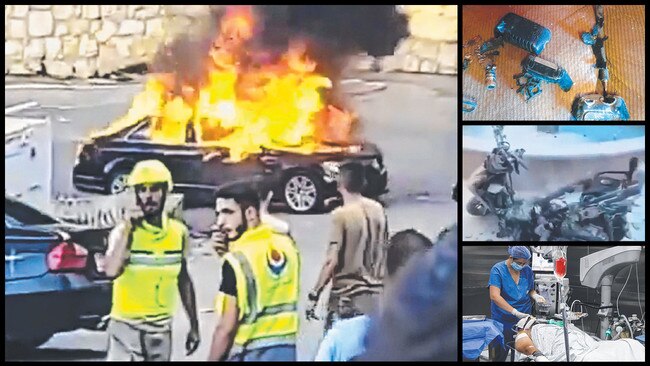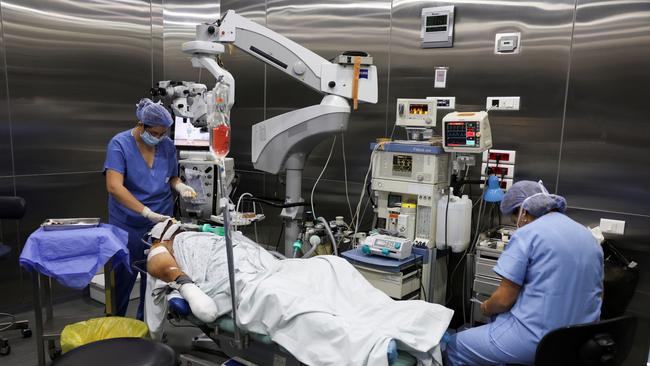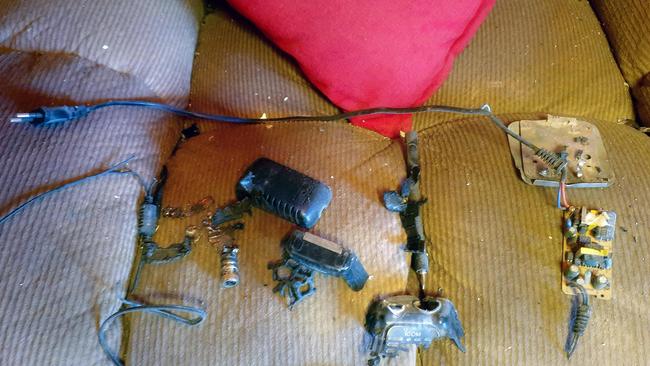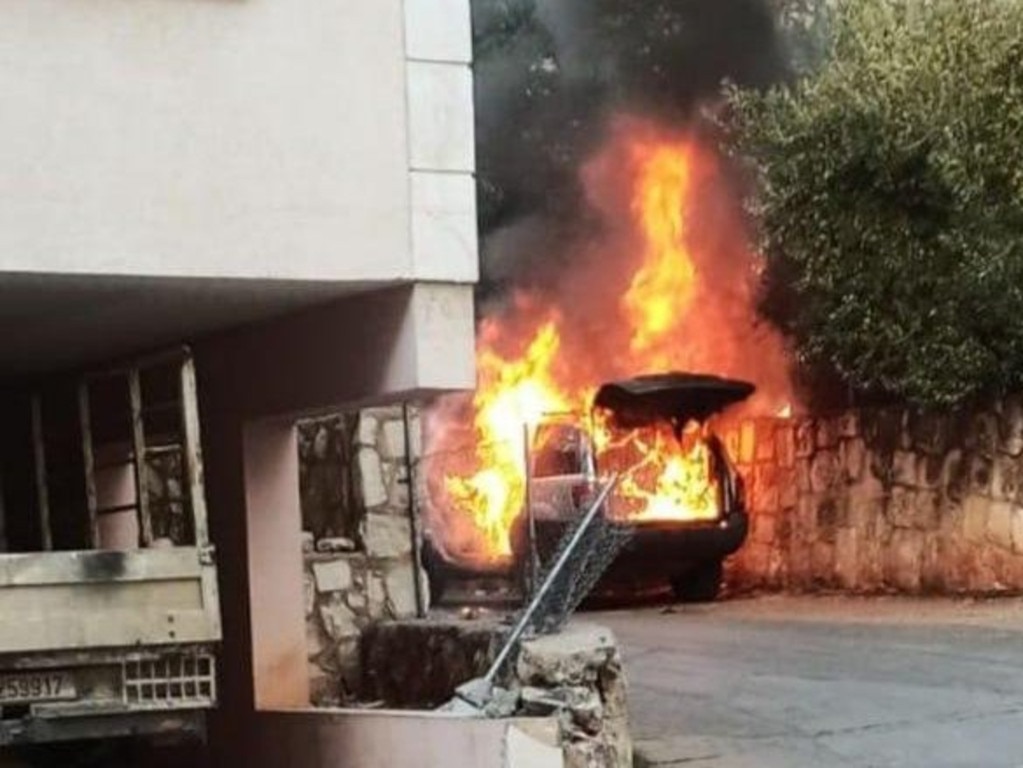Walkie-talkie war in explosive new attack on terrorists, killing 20
Israel has declared a ‘new era’ in its military confrontation with Hezbollah after a second series of booby-trap explosions, this time inside walkie-talkies, killed 20 Hezbollah operatives and wounded more than 450 in Lebanon.

You can now listen to The Australian's articles. Give us your feedback.
Israel has declared a “new era” in its military confrontation with Hezbollah after a second series of booby-trap explosions, this time inside walkie-talkies, killed 20 Hezbollah operatives and wounded more than 450 in Lebanon.
The fresh mass attacks stunned the terror group, coming just a day after the mass explosions of booby-trapped Hezbollah pagers killed 12 and injured more than 2800.
The attack caused chaotic scenes across Lebanon for the second day, with hospitals overrun by the wounded, mostly young men, after their Hezbollah walkie-talkies suddenly exploded in balls of flame.
The devastating attacks, masterminded by Israel’s spy agency Mossad, led Israel to declare that its conflict with Hezbollah had entered a new era of military confrontation with the Iranian-backed terror group.
Defence Minister Yoav Gallant said: “The centre of gravity is moving north. The meaning is that we are diverting forces, resources, energy towards the north.”
Israeli Prime Minister Benjamin Netanyahu also hinted at an expanded conflict with Hezbollah, saying his country was committed to returning Israeli civilians to their evacuated homes in the north. But this would only be possible if Israel took greater military steps to prevent Hezbollah from firing rockets across the border.
“I already said that we would return the residents of the north securely to their homes, and that is exactly what we will do,” Mr Netanyahu said after the second attack via walkie talkies.
Israel has not admitted its involvement in either the pager or walkie-talkie attacks, but Mossad is reported to have been behind both, in one of its most successful spy operations.
In the first attack Mossad placed explosives in pagers ordered by Hezbollah, but a second set of explosives was placed in Hezbollah-issued walkie talkies which were a discontinued model made by a Japan-based electronics manufacturer.

The explosions in walkie talkies – a discontinued model made by a Japan-based electronics manufacturer – were larger than those caused by the pagers, setting fire to some 60 homes and shops as well as cars and motorbikes, mostly in areas which were Hezbollah strongholds including southern Beirut.
One explosion occurred during an outdoor funeral of victims of the pager explosions, causing panic as crowds ran for cover, seeking to turn off their own electronic devices.
Hezbollah has vowed revenge for the two attacks which have seriously depleted its ranks of fighting age men and have all but destroyed the terror group’s ability to communicate effectively to its members.
The Lebanese health minister said the first pager attack killed 12 people — including an eight-year-old girl and an 11-year-old boy — and wounded 2800 others, many of them with life changing injuries to their face, hands and stomachs.

The second attack via walkie talkies was more deadly but was on a smaller scale than the pager attack, killing 20 and injuring more than 450.
Lebanese physician Dr Elias Warrak told the BBC it was “the worst day of (his) life as a physician” with at least 60 per cent of the people he had seen having lost at least one eye with many also losing a finger or a whole hand.
“I believe the number of casualties and the type of damage that has been done is humongous,” he said. “Unfortunately, we were not able to save a lot of eyes, and unfortunately the damage is not limited to the eyes – some of them have damage in the brain in addition to any facial damage.”
Israel is reported to be moving its elite 98th Division from Gaza to northern Israel as part of its rebalancing effort to focus more on its conflict with Hezbollah in Lebanon. The redeployment of Israeli forces has been made possible by its defeat of most of Hamas’ fighting force in Gaza over the past 11 months since last year’s October 7 massacre of Israelis by Hamas. Lebanon’s Foreign Minister Abdallah Bou Habib said he feared that the consecutive attacks could signal the start of an “introduction to war.”
“It’s a scary moment and we are afraid (of) coming to war, because we don’t want a war,” he said.
UN Secretary-General Antonio Guterres called on both sides to avoid further escalation, saying the “logic” of carrying out such a major strike via remote explosives was that of a “pre-emptive strike before a major military operation.”
Israel has not announced a specific major new military operation but its vow to resettle displaced Israelis into their homes suggests that it is planning to ramp up its military campaign against Hezbollah to prevent the terror group attacking those homes.
Ever since the October 7 attacks, Hezbollah and Israel have exchanged missile and drone attacks across the border on an almost daily basis in a low level conflict which has fallen short of all out war.






To join the conversation, please log in. Don't have an account? Register
Join the conversation, you are commenting as Logout